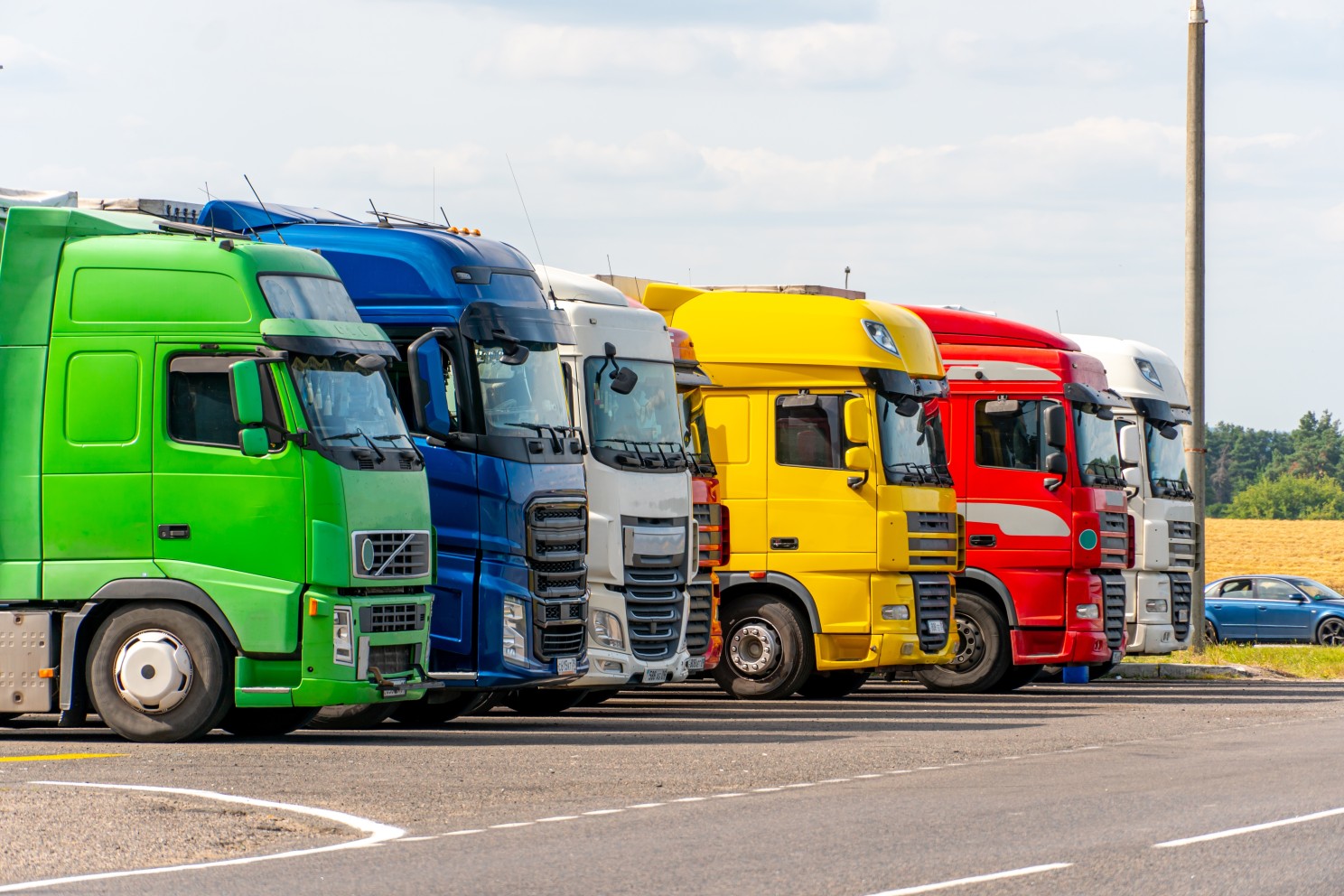
Susie Jones
Como lidar com a diversidade de condutores no sector
Criado: 21/08/2024
•
Atualizado: 21/08/2024
Se lhe pedíssemos para descrever um camionista, a sua resposta poderia retratar uma imagem estereotipada de um homem branco e mais velho. Será que isto é exato? Tradicionalmente, a indústria dos camiões tem sido dominada pelos homens. Ao longo dos anos, o sector tornou-se mais diversificado e abriu oportunidades para mulheres, pessoas de diferentes idades e origens entrarem neste campo. A diversidade está a aumentar, mas os desafios externos, como o Brexit e a pandemia, têm vindo a afinar esta tendência.
Mulheres no sector
Apesar de haver um défice de até 100.000 condutores de veículos pesados de mercadorias no Reino Unido, apenas 1% a 3% dos camionistas são mulheres. Então, porque é que não há mais mulheres a inscreverem-se para a vida na estrada?
Segurança: Estima-se que 60% das mulheres camionistas já se sentiram inseguras durante o trabalho. Muitas expressaram a necessidade de estacionar sob uma luz, planear as suas paragens e transportar gás pimenta.
Tecnologia e equipamento: Ergonomicamente, os camiões foram construídos para os homens. No passado, as mulheres achavam que alcançar os controlos, ajustar os assentos e os aspectos físicos do trabalho eram limitadores. No entanto, os avanços tecnológicos significam que o esforço físico não é um problema. A maioria dos camiões modernos tem agora direção assistida e caixas de velocidades automáticas para facilitar as coisas.
Apesar destes contratempos, as mulheres estão a fazer ouvir a sua voz e a impor mudanças na indústria. Condutoras como Jodi Smith são defensoras inestimáveis do sector. Jodi partilha as suas experiências de camionagem online e prova que esta indústria não é apenas um mundo de homens.
"Conduzir um camião não é um trabalho de homem - eu consigo fazer este trabalho com um conjunto completo de acrílicos! É bastante físico, mas não é difícil", afirma Jodi quando [falámos com ela em 2021] (https://fleetpoint.org/driver-training-safety/driver-safety-2/are-women-the-future-of-trucking/). Com sete anos de experiência, Jodi continua a defender a entrada de mais mulheres na comunidade dos camionistas.
Um resultado que poderá conduzir a estradas mais seguras - os dados do American Transportation Research Institute revelam que as mulheres são condutores comerciais mais seguros. Os condutores do sexo masculino têm 20% mais probabilidades de se envolverem num acidente do que as suas homólogas do sexo feminino.

Diversidade etária no sector
O Office of National Statistics sugere que a idade média de um condutor de veículos pesados é de quarenta e oito anos e que 47% dos condutores de camiões no Reino Unido têm mais de cinquenta anos e pretendem reformar-se em breve. Estas estatísticas, para além da atual escassez de condutores, sugerem uma necessidade de condutores mais jovens na indústria.
É mais fácil falar do que fazer; muitos jovens condutores enfrentam os seguintes desafios:
Formação: A obtenção de uma carta de condução comercial pode custar até £2.000
Seguro: Embora a idade mínima para conduzir um veículo pesado de mercadorias no Reino Unido seja 18 anos, muitos têm dificuldade em obter um seguro
Experiência: Algumas empresas querem contratar motoristas experientes, o que pode ser um contratempo
Condições: A vida dos camionistas pode ser exigente - as longas horas e o tempo passado longe dos entes queridos podem ser um impedimento. No entanto, a vida na estrada tem muitas vantagens, como a comunidade, as viagens, o salário e a estabilidade no emprego.

As empresas que procuram motoristas podem beneficiar com a contratação de camionistas mais jovens. É mais provável que se adaptem a um sector em constante mudança. Além disso, aprendem rapidamente e aceitam bem os avanços tecnológicos. O aumento do número de condutores mais jovens a entrar no sector resultará em taxas de rotatividade mais baixas, reduzindo os custos das empresas. Também garantirá que o sector satisfaz a crescente procura de bens e serviços.
No entanto, quais são as desvantagens para si se for um condutor mais velho? Há quem sugira que a idade afecta as capacidades físicas e cognitivas, afectando a capacidade de conduzir em segurança. Estas são vitais para os condutores de camiões, uma vez que lidam com longas horas de trabalho, exigências físicas e situações de stress.
A FMCSA abordou estas preocupações. Os regulamentos exigem que os condutores mais velhos se submetam a exames médicos e avaliações de condução frequentes. Recentemente, foi noticiado que um [camionista de 90 anos] (https://www.bbc.co.uk/news/uk-england-south-yorkshire-64223431) de Sheffield continuava a conduzir camiões depois de ter recebido um atestado de saúde. Muitos argumentam que os condutores mais velhos trazem consigo décadas de experiência e conhecimento, o que sugere que, se forem saudáveis, não deve haver barreiras ao emprego.
Como pode a diversidade resolver a atual escassez de condutores?
Em 2022, o Gabinete para os Assuntos dos Veteranos concedeu 100 000 libras à instituição de caridade Veterans into Logistics. Esta instituição oferece aos veteranos a oportunidade de se tornarem condutores de veículos pesados de mercadorias. O financiamento permitiu à instituição elevar significativamente a sua formação anual, aumentar o número de funcionários e triplicar a formação disponível. A XPO, a ASDA e a Muller Milk & Ingredients são empresas que contratam ativamente veteranos diretamente após a formação.
Além disso, a ASDA disponibilizou £40.000 para ajudar na formação contínua. O apoio a instituições de caridade como a Veterans into Logistics cria uma cultura mais diversificada na condução de camiões, ao mesmo tempo que combate ativamente a atual escassez de condutores.
O que pode ser feito para atrair mais diversidade?
Ter uma força de trabalho diversificada abre as empresas a diferentes pontos de vista e experiências. O que é que as empresas podem fazer para atrair uma força de trabalho diversificada?
Investir na formação: A formação para educar os funcionários sobre tópicos como preconceitos implícitos, inclusão no local de trabalho, prevenção da discriminação e como apoiar uma força de trabalho diversificada pode ter um efeito positivo.
Investir num processo de contratação inclusivo: O anonimato do CV de um candidato pode reduzir os preconceitos inconscientes.
Promover uma cultura inclusiva: Comunique aos potenciais candidatos a forma como está a lidar com as actuais questões de diversidade e inclusão.
Contactar os grupos sub-representados neste sector.
A promoção e o acolhimento de uma cultura diversificada na condução de camiões pode beneficiar substancialmente a indústria. Não só contribuirá para a criação de um ambiente de trabalho mais inclusivo e acolhedor, como também ajudará a resolver a atual escassez de condutores. As empresas de camionagem têm a responsabilidade de abraçar a diversidade, tanto quanto os condutores de camiões.

Que país tem procura de condutores de camiões?
Um relatório publicado em dezembro de 2022 sugeria que a escassez na Europa tinha aumentado 42% entre 2020 e 2021. O Reino Unido ficou em primeiro lugar, com vagas para motoristas a atingir as 100.000. O México e a China também estão no topo da lista, com a escassez do México a aumentar 30% e a da China a subir para uns impressionantes 140%.
Precisaremos de camionistas no futuro?
A introdução de camiões autónomos fez com que muitos sugerissem que não há futuro para os camionistas. No entanto, isso está longe de ser verdade.
Os camiões autónomos serão implantados gradualmente em regiões designadas. A probabilidade de isto afetar a maioria dos condutores é reduzida.
Se os camiões autónomos fossem implementados em todo o mundo, continuariam a ser necessários condutores. A procura de condutores de camiões só irá aumentar, pois há demasiadas coisas que podem acontecer se não houver um condutor na cabina.
Quais são os estereótipos dos condutores de camiões?
Sabemos da importância dos camionistas, mas, aos olhos de alguns, os estereótipos negativos ainda estão ligados ao sector - esta imagem pode dever-se a uma representação errada dos meios de comunicação social e, por vezes, a alguns condutores inexperientes. Mas o que é esta imagem estereotipada? E porque é que está errada?
Excesso de peso - Algumas paragens de camiões oferecem comida rápida pouco saudável, o que pode dar a impressão de que os camionistas só a consomem. No entanto, essa não é certamente a norma. Comer de forma saudável na estrada pode ser um desafio, mas muitos mantêm uma dieta equilibrada e fazem exercício regularmente. Veja as nossas dicas para [comer saudável na estrada] (https://www.linkedin.com/pulse/how-healthy-truck-driver-snap-account/?trackingId=g91E6xbfIMoJTora4dSipQ%3D%3D).
Maus condutores - Um estereótipo que não podia estar mais longe da verdade. Os condutores profissionais de camiões levam a segurança muito a sério. Respeitam frequentemente o limite de velocidade, são extremamente cautelosos em condições climatéricas adversas e deixam bastante espaço entre si e os outros condutores.
Palavrões - Todos nós temos raiva na estrada e os camionistas não são exceção. No entanto, é injusto atribuir este estereótipo apenas aos camionistas.
Todos os camionistas são homens - Os homens são mais numerosos do que as mulheres nesta indústria; no entanto, o número de mulheres camionistas está a aumentar.


